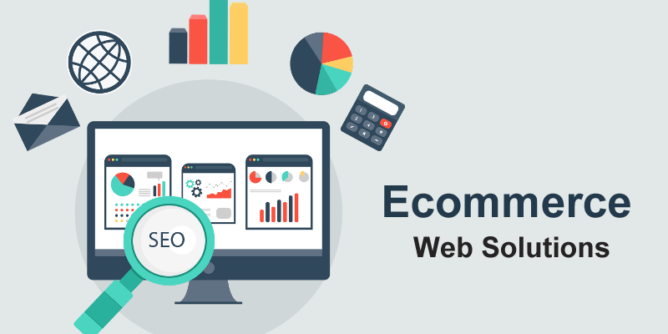
This is where search engine optimization (SEO) comes into play. In this article, we will explore effective ecommerce SEO solutions that can help businesses maximize their online visibility, attract qualified traffic, and ultimately drive conversions.
Table of Contents
- Optimizing On-Page Elements
- Implementing a Content Marketing Strategy
- Creating Unique and Engaging Product Descriptions
- Enhancing User Experience
- Implementing Structured Data Markup
- Building High-Quality Backlinks
- Leveraging Social Media for Ecommerce SEO
- Monitoring and Analyzing Performance
- Mobile Optimization for Ecommerce Websites
- Optimizing Site Speed
- Utilizing Local SEO Strategies
- Keeping Up with Algorithm Updates
- Conclusion
- FAQs
- 1. How long does it take to see results from ecommerce SEO?
- 2. Should I prioritize on-page optimization or off-page optimization for my ecommerce website?
- 3. How can I measure the success of my ecommerce SEO campaign?
- 4. Is social media important for ecommerce SEO?
- 5. How often should I update my ecommerce website for SEO purposes?
Optimizing On-Page Elements
Optimizing on-page elements such as title tags, meta descriptions, headers, and URLs can significantly impact your website’s visibility in search results. Craft compelling, keyword-rich title tags and meta descriptions that entice users to click on your website.
Implementing a Content Marketing Strategy
Content marketing plays a significant role in ecommerce SEO company. Create high-quality, informative, and engaging content related to your products or industry. Publish blog posts, guides, tutorials, and videos that provide value to your target audience. Share your content on social media and utilize email marketing to reach and engage potential customers.
Creating Unique and Engaging Product Descriptions
Unique and engaging product descriptions not only help search engines understand your products but also entice potential customers. Focus on creating informative and persuasive descriptions that highlight the benefits, features, and unique selling points of your products.
Enhancing User Experience
User experience (UX) plays a crucial role in converting website visitors into customers. Ensure your website is visually appealing, easy to navigate, and mobile-friendly. Optimize loading times and streamline the checkout process to minimize friction and increase conversions.
Implementing Structured Data Markup
Implementing structured data markup, such as schema.org, can enhance your website’s visibility in search results. By providing additional information to search engines, you can increase the chances of having rich snippets, such as product ratings, reviews, and pricing, displayed alongside your website’s listing.
Building High-Quality Backlinks
Backlinks are a vital ranking factor in SEO. Focus on acquiring high-quality backlinks from reputable websites within your industry. Develop relationships with influencers and bloggers, create shareable content, and leverage guest blogging opportunities to earn valuable backlinks.
Leveraging Social Media for Ecommerce SEO
Social media platforms offer excellent opportunities to drive traffic and boost SEO efforts. Create engaging and shareable content that encourages social sharing. Leverage social media advertising to target your audience effectively and increase brand visibility. Engage with your followers, respond to comments and messages, and actively participate in relevant online communities to build a strong social media presence.
Monitoring and Analyzing Performance
Regularly monitor and analyze the performance of your Ecommerce seo solutions. Utilize tools like Google Analytics to track website traffic, user behavior, and conversion rates. Identify areas for improvement, such as pages with high bounce rates or low conversion rates, and make necessary optimizations.
Mobile Optimization for Ecommerce Websites

With the increasing use of smartphones and tablets, optimizing your ecommerce website for mobile devices is essential. Ensure your website is mobile-responsive, loads quickly, and provides a seamless browsing experience across different screen sizes. Mobile-friendly websites are favored by search engines and offer a better user experience, leading to higher conversions.
Optimizing Site Speed
Site speed is a critical factor in both user experience and search engine rankings. Optimize your website’s loading times by compressing images, minimizing code, and utilizing caching techniques. A faster website not only improves user satisfaction but also increases the likelihood of conversions.
Utilizing Local SEO Strategies
If your ecommerce business has physical stores or serves specific geographic areas, implementing local SEO strategies is crucial. Optimize your website for local keywords, create location-specific landing pages, and list your business on online directories like Google My Business. Encourage customers to leave reviews and ratings, as they can positively impact your local search visibility.
Keeping Up with Algorithm Updates
Search engine algorithms are constantly evolving, and staying updated is crucial to maintaining your Ecommerce seo solutions efforts. Stay informed about the latest algorithm updates, industry trends, and best practices. Continuously adapt your strategies to align with the changing search landscape, ensuring that your website remains optimized and competitive.
Conclusion
Effective ecommerce SEO is vital for driving organic traffic, increasing brand visibility, and maximizing conversions. By understanding the importance of SEO, conducting thorough keyword research, optimizing on-page elements, creating compelling product descriptions, enhancing user experience, building backlinks, leveraging social media, and monitoring performance, ecommerce businesses can improve their online presence and achieve sustainable growth.
FAQs
1. How long does it take to see results from ecommerce SEO?
The timeline for seeing results from ecommerce SEO can vary depending on various factors, including the competitiveness of your industry, the quality of your SEO efforts, and the age of your website. Generally, it takes several months to start seeing noticeable improvements in search engine rankings and organic traffic. However, consistent and strategic SEO practices can lead to long-term success.
2. Should I prioritize on-page optimization or off-page optimization for my ecommerce website?
Both on-page and off-page optimization are essential for a comprehensive ecommerce SEO strategy. On-page optimization focuses on optimizing elements within your website, such as meta tags, content, and URLs. Off-page optimization involves building backlinks, social media marketing, and other external factors. It’s important to strike a balance between the two and prioritize optimization efforts based on your specific goals and target audience.
3. How can I measure the success of my ecommerce SEO campaign?
To measure the success of your Ecommerce seo solutions campaign, track key metrics such as organic traffic, conversion rates, keyword rankings, and engagement metrics. Utilize tools like Google Analytics and Google Search Console to gather data and monitor your website’s performance. Regularly analyze the data, identify trends and patterns, and make data-driven optimizations to improve your SEO strategy.
4. Is social media important for ecommerce SEO?
Yes, social media plays a significant role in Ecommerce seo solutions. It helps increase brand visibility, drive traffic to your website, and improve your search engine rankings. By sharing valuable content, engaging with your audience, and leveraging social media advertising, you can expand your reach and attract potential customers to your ecommerce store.
5. How often should I update my ecommerce website for SEO purposes?
Regular updates to your ecommerce website are beneficial for SEO. This includes adding new products, refreshing product descriptions, optimizing content, and implementing technical improvements. Additionally, publishing fresh and relevant content through blog posts or articles can help attract search engine traffic. Aim to update your website consistently to provide value to both users and search engines.






